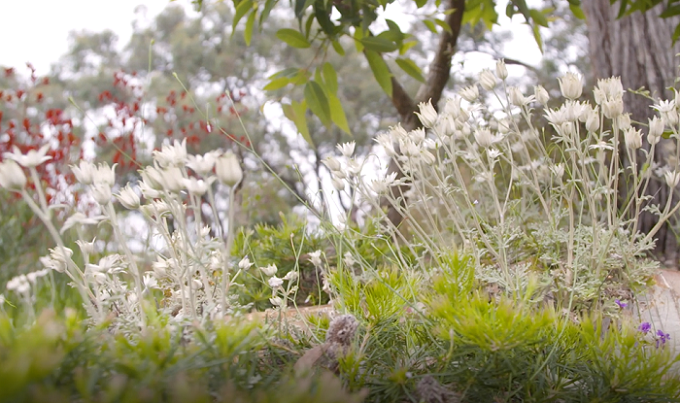We cannot wait another generation or more, for action

Already this year we’ve seen two key Royal Commission Reports handed down that have the ability to impact the future of mental health reform and service delivery and the lives of Australians – the Royal Commission into Aged Care Quality and Safety and the Royal Commission into Victoria’s Mental Health System.
These detailed and vital reports, coupled with the Productivity Commission Inquiry into Mental Health and Vision 2030 collectively outline hundreds of recommendations combined, recommendations for action to improve our mental health ecosystem.
And that’s the key point here, while the intent for reform has been collective and commendable, the time for review and reflection has finished and action must now follow, and soon, if we are to see the benefits of true generational reform.
This week is the 30-year anniversary of the Royal Commission into Aboriginal Deaths in Custody and for me it has been a clear reminder of how these crucial reports – informed as they are by listening to lived experience and practical data – can be a line in the sand, but also how the residual impact of action (or inaction) can determine and define true reform.
The Royal Commission into Aboriginal Deaths in Custody was, and still is, extremely high profile and important.
It found that Aboriginal and Torres Strait Islander peoples were not more likely than others to die in custody, but that they were ‘grossly over-represented in custody’, with a ‘significant’ contributing factor to the over-representation found to be inequality – whether it be social, economic, cultural or all three.
In 2019, Aboriginal and Torres Strait Islander peoples made up 28 per cent of the prisoner population in Australia, while the most recent census data says Aboriginal and Torres Strait Islander people account for just three per cent of our population.
In South Australia, where there is a push to raise the age of criminal responsibility from 10 years old to 14, First Nations children make up less than five per cent of the population but more than 60 per cent of the juvenile prison population. In the Northern Territory this was 100% in 2019.
So, if the 1987 Royal Commission highlighted ‘gross over-representation’ as a significant factor, it appears this factor remains a generation on, and that is our challenge, not just as advocates for reform but as advocates to improve the social structures of the communities in which we live and therefore their mental health and wellbeing.
As advocates, our challenge is to use these reports, and lines in the sand, to seek lasting system change and reform. They should be the blueprints from which we re-design the systems we need, and the systems that will address the ‘significant’ factors raised through such careful review.
The final recommendation of the Royal Commission into Aboriginal Deaths in Custody, number 339, reads:
That all political leaders and their parties recognise that reconciliation between the Aboriginal and non-Aboriginal communities in Australia must be achieved if community division, discord and injustice to Aboriginal people are to be avoided. To this end the Commission recommends that political leaders use their best endeavours to ensure bi-partisan public support for the process of reconciliation and that the urgency and necessity of the process be acknowledged.
To recognise is one thing, but to act is another. In this instance clearly our ‘best endeavours’ have not been enough over the last 30 years, which is why we need more than best endeavours to maximise the current opportunity for true generational mental health reform.
You can find a full list of recommendations from the 1987 Royal Commission into Aboriginal Deaths in Custody here, and you can also watch our Mental Health Australia – Welcome to country video here.
Have a good weekend.

Leanne Beagley
CEO
Thank you and good luck to Melanie Cantwell
After more than 14 years at Mental Health Australia, across several positions, Deputy CEO Melanie Cantwell is sadly leaving Mental Health Australia. Along with the Board and staff I am sincerely grateful to Mel for her acumen, diligence and years of service and passionate commitment to mental health advocacy. She has always reminded us of the voices of consumers and carers, and she has been extremely generous in orientating me as the new CEO into the breadth of work of Mental Health Australia. We are sure you as the stakeholder community will join us in wishing Mel all the very best for a well-earned break and for future endeavours.
Welcome to two new staff members
We would also like to welcome two new staff members who started at Mental Health Australia this week. Rikke Brøchner Andersen who has joined us on secondment from the National Ethnic Disability Agency to help out with the Embrace Project two days a week, and Nikki Hogan who has started in a new Partnerships Manager role. Welcome to both Rikke and Nikki.
|
• On Monday I will be meeting with Cindy Smith, CEO of the Australian Association of Social Workers and then with David Pearson CEO at The Australian Alliance to End Homelessness. Later Harry Lovelock and I will meet with Sam Rosevear and Sophie Nicole from Headspace to talk about their national policy agenda.
• On Wednesday I will be attending an extended consultation with the National Commissioner for Defence and Veteran Suicide Prevention.
• Thursday I have an Industry Reference Group Meeting with the NDIA and later a Mentally Healthy Workplace Alliance meeting.
• On Friday I am excited to be a panellist at the LGBTIQ+ Conference Mental Health Panel: Health in Difference and then representing the mental health sector at the Culturally and Linguistically Diverse Communities COVID-19 Health Advisory Group meeting.
|
|
Member Benefits and Profiles
|
|
|
|
Communicate your news or upcoming events to more than 5,000 people in the mental health ecosystem weekly.
Mental Health Australia members are invited to send us news, announcements, events or other notices for inclusion in the Weekly CEO Update newsletter. To do so, simply fill out this form by COB each Wednesday for your notice to appear in the newsletter the following Friday.
Member Profiles

Dementia Australia
Dementia Australia represents the 459,000 Australians living with dementia and the almost 1.6 million Australians involved in their care. We advocate for the needs of people living with all types of dementia, and for their families and carers, and provide support services, education and information.

TeamHEALTH
TeamHEALTH is a for purpose organisation that supports people dealing with mental health concerns or mental illness. We seek to create community capacity for good mental health so that all people may lead a full and valued life.
|
|
|
Embrace Multicultural Mental Health News
|
Framework for Mental Health in Multicultural Australia Workshops
We are pleased to announce that we are holding 3 new workshops on the Framework in Sydney, Melbourne and Brisbane. These free and newly expanded workshops will offer participants an opportunity to learn more about the Framework and hear how services have applied the Framework to their workplace.
Registrations can be made using the following links:

|
Release of the Mental health and Suicide Prevention Interim Report
The House of Representatives Select Committee on Mental Health and Suicide Prevention released its interim report. The Committee’s interim report includes an update on the Committee’s activities to date, and emerging themes identified through recent reports into Australia’s mental health system and engagement with the Productivity Commission, National Mental Health Commission and Department of Health. The interim report can be accessed on the committee’s website.
Psychiatrists support addressing the issue of veteran suicide
The Royal Australian and New Zealand College of Psychiatrists (RANZCP) believes that it is important to address the issue and work towards best possible care and help for Veterans. The concerning rates of mental health issues and suicide amongst veterans must be addressed, not only immediately, but appropriately.
Read more
Tasmania Labor will form a Suicide Prevention Commission
A majority Labor Government would form a Suicide Prevention Commission to help identify and understand the factors and systematic issues that may contribute to suicide risk. Labor Leader, Rebecca White, said funding of $1 million a year would be given to the Commissioner to help government better understand the issues facing Tasmanians. “The Commissioner will make recommendations to government about the actions and strategies relevant to past and any future deaths by suicide,” Ms White said.
Read more
National standards for community managed organisations
The Australian Commission on Safety and Quality in Health Care (the Commission) has developed a consultation paper for National Safety and Quality Mental Health (NSQMH) Standards for Community Managed Organisations (CMOs). This is the first step in the development of NSQMH Standards for CMOs, which will help provide safety and quality assurance for community mental health service users, and best practice guidance for service providers and developers. The consultation paper is now available on the Commission’s website.
|
|
|
Nominations open for the 2021 LiFE Awards
Every year, the LiFE Awards recognise those who have gone above and beyond in their work for suicide prevention. This year, nominations are open in each State and Territory for the categories of: Outstanding Contribution, Communities in Action, Workplace, Priority Populations. Nominations for the LiFE Awards close on Sunday 18 April 2021.
Sign the Everybody’s Home petition on social housing
Everybody’s Home is asking you to sign this petition to Treasurer Josh Frydenberg urging him to commit funding for social housing. An expansion of social housing will give all Australians a fair go, balancing the housing market, providing families with security and creating jobs.
Australian Kookaburra Kids Foundation corporate lunch
The Australian Kookaburra Kids Foundation play an important role in early intervention and mental health education for young people whose family is impacted by mental illness. Their services are in more demand now than ever. As a registered charity they rely on support from the community, support you can show by booking a spot at the 2021 Corporate Lunch in Sydney on 21 May. Sponsored by Police Bank and hosted by Chanel Nine News Anchor Peter Overton, this year’s event includes an inspiring line-up of keynote speakers and the opportunity to see first-hand the benefits of our program from a Kookaburra kid. 100% of profits raised on the day will go towards helping the Australian Kookaburra Kids Foundation continue to grow their service and support more kids across Australia.
|
|
|
|
|
|
|








